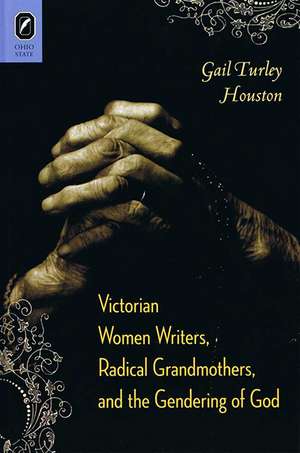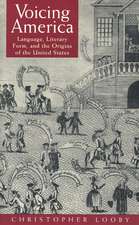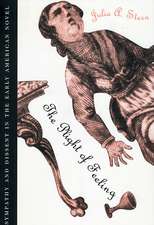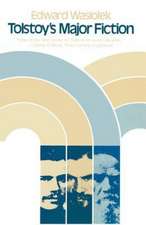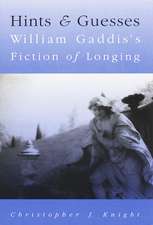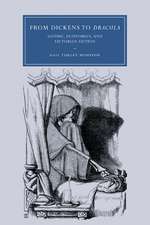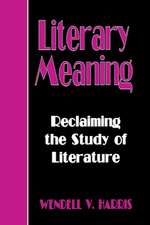Victorian Women Writers, Radical Grandmothers, and the Gendering of God: Literature, Religion, & Postsecular Stud
Autor Gail Turley Houstonen Limba Engleză Paperback – 30 noi 2018
If Victorian women writers yearned for authorial forebears, or, in Elizabeth Barrett Browning’s words, for “grandmothers,” there were, Gail Turley Houston argues, grandmothers who in the late eighteenth and early nineteenth centuries envisioned powerful female divinities that would reconfigure society. Like many Victorian women writers, they experienced a sense of what Barrett Browning termed “mother-want” inextricably connected to “mother-god-want.” These millenarian and socialist feminist grandmothers believed the time had come for women to initiate the earthly paradise that patriarchal institutions had failed to establish.
Recuperating a symbolic divine in the form of the Great Mother—a pagan Virgin Mary, a female messiah, and a titanic Eve—Joanna Southcott, Eliza Sharples, Frances Wright, and others set the stage for Victorian women writers to envision and impart emanations of puissant Christian and pagan goddesses, enabling them to acquire the authorial legitimacy patriarchal culture denied them. Though the Victorian authors studied by Houston—Barrett Browning, Charlotte Brontë, Florence Nightingale, Anna Jameson, and George Eliot—often masked progressive rhetoric, even in some cases seeming to reject these foremothers, their radical genealogy reappeared in mystic, metaphysical revisions of divinity that insisted that deity be understood, at least in part, as substantively female.
Din seria Literature, Religion, & Postsecular Stud
-
 Preț: 248.40 lei
Preț: 248.40 lei -
 Preț: 323.45 lei
Preț: 323.45 lei -
 Preț: 287.73 lei
Preț: 287.73 lei -
 Preț: 215.80 lei
Preț: 215.80 lei -
 Preț: 242.93 lei
Preț: 242.93 lei -
 Preț: 236.57 lei
Preț: 236.57 lei -
 Preț: 267.60 lei
Preț: 267.60 lei -
 Preț: 291.42 lei
Preț: 291.42 lei -
 Preț: 240.05 lei
Preț: 240.05 lei -
 Preț: 236.19 lei
Preț: 236.19 lei -
 Preț: 229.20 lei
Preț: 229.20 lei -
 Preț: 331.45 lei
Preț: 331.45 lei -
 Preț: 327.31 lei
Preț: 327.31 lei -
 Preț: 278.68 lei
Preț: 278.68 lei -
 Preț: 336.46 lei
Preț: 336.46 lei -
 Preț: 272.70 lei
Preț: 272.70 lei -
 Preț: 280.61 lei
Preț: 280.61 lei -
 Preț: 286.63 lei
Preț: 286.63 lei -
 Preț: 539.86 lei
Preț: 539.86 lei
Preț: 331.03 lei
Nou
Puncte Express: 497
Preț estimativ în valută:
63.35€ • 65.89$ • 52.30£
63.35€ • 65.89$ • 52.30£
Carte tipărită la comandă
Livrare economică 08-14 aprilie
Preluare comenzi: 021 569.72.76
Specificații
ISBN-13: 9780814255131
ISBN-10: 0814255132
Pagini: 208
Greutate: 0.3 kg
Ediția:1
Editura: Ohio State University Press
Colecția Ohio State University Press
Seria Literature, Religion, & Postsecular Stud
ISBN-10: 0814255132
Pagini: 208
Greutate: 0.3 kg
Ediția:1
Editura: Ohio State University Press
Colecția Ohio State University Press
Seria Literature, Religion, & Postsecular Stud
Notă biografică
Gail Turley Houston is professor and chair of English language and literature at the University of New Mexico.
Cuprins
Chapter 1 Introduction: Antecedents of the Victorian “Goddess Story”
Chapter 2 “Gods of the old mythology arise”: Charlotte Brontë’s Vision of the “Goddess Story”
Chapter 3 Feminist Reincarnations of the Madonna: Anna Jameson and Ecclesiastical Debates on the Immaculate Conception
Chapter 4 Invoking “all the godheads”: Elizabeth Barrett Browning’s Polytheistic Aesthetic
Chapter 5 Eve, the Female Messiah, and the Virgin in Florence Nightingale’s Personal and Public Papers
Chapter 6 Ariadne and the Madonna: The Hermeneutics of the Goddess in George Eliot’s Romola
Chapter 2 “Gods of the old mythology arise”: Charlotte Brontë’s Vision of the “Goddess Story”
Chapter 3 Feminist Reincarnations of the Madonna: Anna Jameson and Ecclesiastical Debates on the Immaculate Conception
Chapter 4 Invoking “all the godheads”: Elizabeth Barrett Browning’s Polytheistic Aesthetic
Chapter 5 Eve, the Female Messiah, and the Virgin in Florence Nightingale’s Personal and Public Papers
Chapter 6 Ariadne and the Madonna: The Hermeneutics of the Goddess in George Eliot’s Romola
Descriere
Demonstrates how Joanna Southcott, Eliza Sharples, Frances Wright, and others set the stage for Victorian women writers to envision and impart emanations of puissant Christian and pagan goddesses, enabling them to acquire the authorial legitimacy patriarchal culture denied them.
